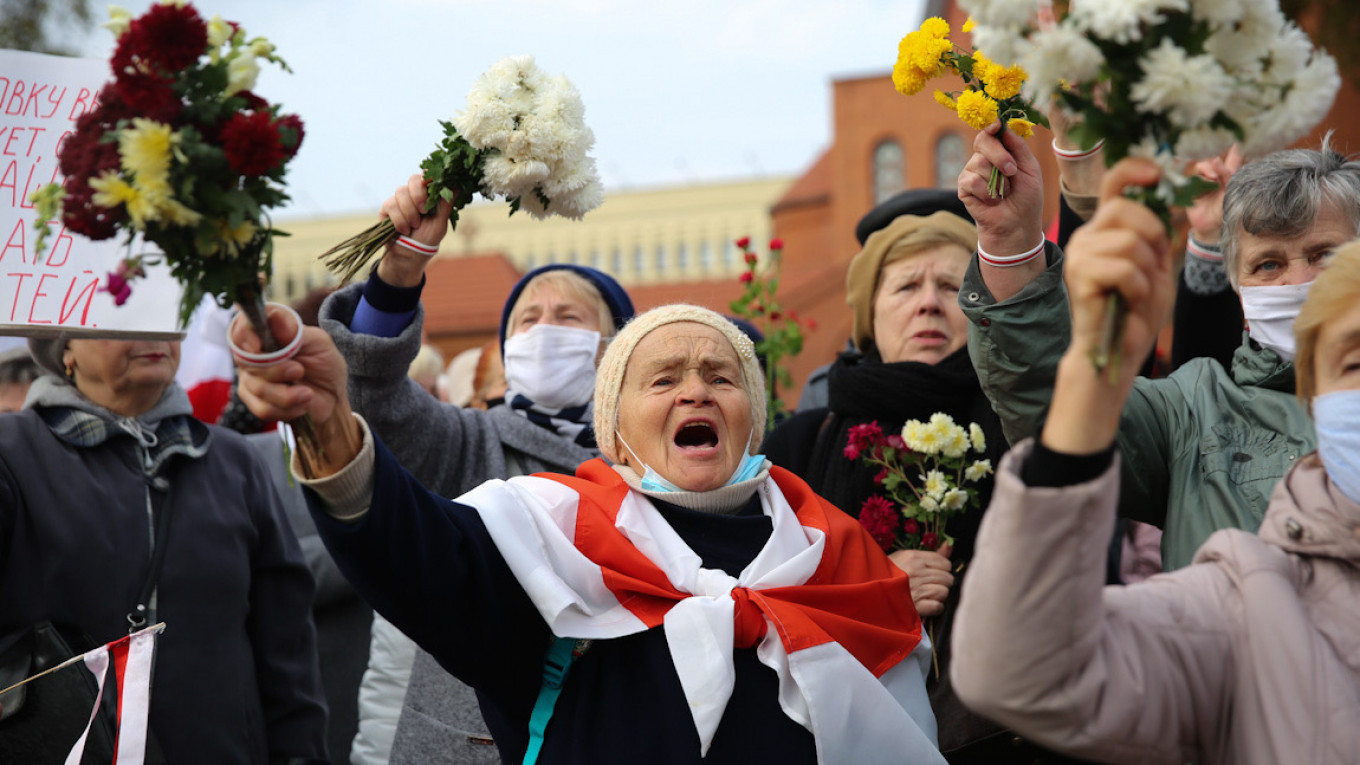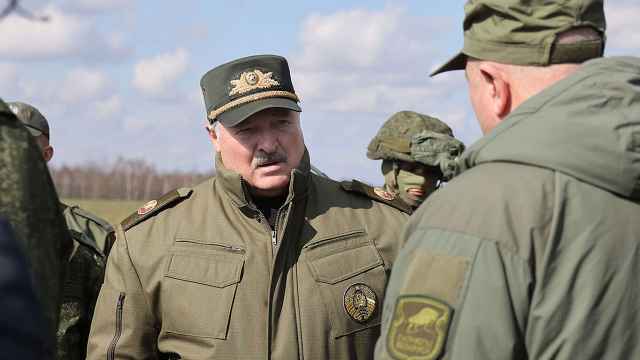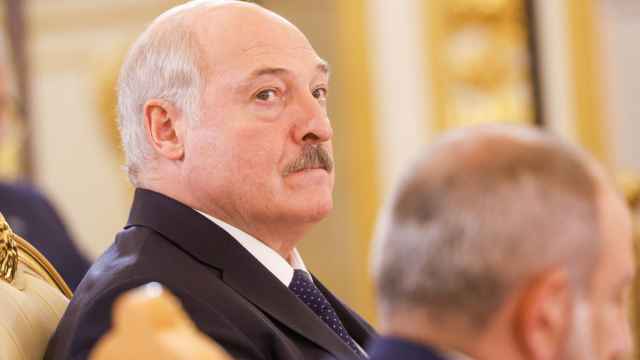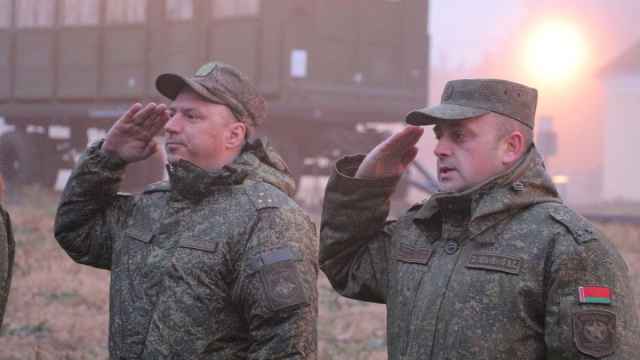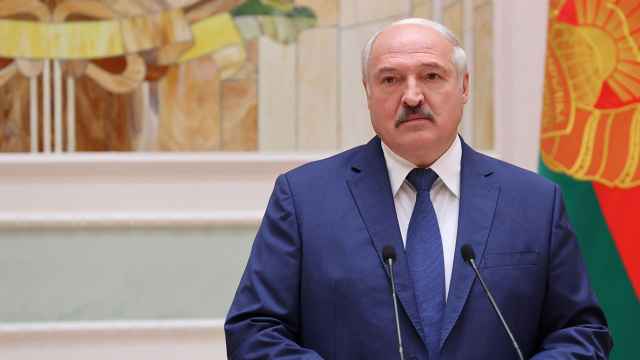Two weeks ago, Belarusian opposition leader — and likely winner of the recent presidential election — Svetlana Tikhanovskaya, demanded Alexander Lukashenko, Belarus’s embattled president, resign by Oct. 25 or face a national strike. Lukashenko responded by calling the strike a “terrorist war.”
By issuing this latest ultimatum, Tikhanovskaya has given another boost to the protesters. But she is also staking her reputation on its success. As I previously argued, the current protest movement is unlikely to dislodge Lukashenko — though it might create the seeds for a more successful attempt to get rid of him sometime in the future. How the strike plays out over the next few weeks is likely to determine whether the current protest movement succeeds or fails.
To assess those chances, we need to look at how we got to this point — with large-scale protests still a weekly occurrence, but Lukashenko maintaining a robust grip on power.
After the initial wave of mass detentions and widespread allegations of torture led to public outrage and pressure from abroad, the Belarusian authorities have since become more restrained in their use of force. The security services now arrest dozens, not thousands, of protesters. Their coercive measures have become more targeted and less overtly brutal. Protesters are now threatened with losing custody of their children, or their jobs, for instance.
This change in tactics from the Lukashenko regime came even as it refused to make any serious concessions to the protesters. A combination of repression and lack of concessions has been an effective strategy elsewhere, especially when an outside party — Russia in this case — encourages such repression.
Mixed results
Tikhanovskaya’s attempt to reignite the protest movement by giving industrial workers a prominent role is similarly a wise move.
State bureaucrats in Belarus, as in Russia, are likely to actively or passively support the ruling regime. The increasing reliance on female protesters might have put pressure on the security services to decrease the scale of anti-protester violence, but hasn’t led to any cracks in Lukashenko’s regime.
Organized labor historically played an integral role in civil resistance campaigns, including shifting countries toward democracy in instances when the movements have succeeded in toppling regimes. The Belarusian economy, which depends heavily on industrial exports and was weak even before the coronavirus, could face collapse in the event of a widespread, prolonged industrial strike.
But nearly a week into the strike, results are — at best — mixed, for Tikhanovskaya. Several thousand workers did go out on strike, as did some university students. Some businesses — especially in Minsk — also closed their stores on Oct. 26, though the number of those that participated is unclear. More typical than workers joining picket lines, were so-called “Italian strikes” — workers calling in sick or slowing down production through other means.
Lukashenko’s response has combined tough rhetoric backed-up with selective enforcement measurements. For example, around 100 workers took part in a strike at the Grodno Azot plant, but only a dozen were fired in retaliation. Similarly, a solidarity strike by students from the Belarusian State University of Culture and Arts led to 18 expulsions. Those students have already been offered an opportunity to finish their education in sympathetic European countries. These actions have further undermined Lukashenko’s legitimacy, but haven’t had a noticeable impact on the economy.
What would it take for the Belarusian protests to succeed in removing Lukashenko from power?
Firstly, there would have to be substantial defections from the elite. Not because political elites in Belarus wield significant power, but because of the signal this would send to the Belarusian military and to Russia. That’s unlikely to happen, barring a significant economic decline.
Secondly, Russia would have to adopt a more neutral stance. Without Russia backing-off in its support for Lukashenko’s regime, the Belarusian economy is unlikely to collapse, the Russian-speaking media will be able to maintain a unified pro-Lukashenko front, and other countries will remain unwilling or be unable to put enough pressure on Lukashenko to resign.
Finally, Lukashenko would have to make a serious mistake — comparable to the Maidan massacre in Ukraine in February 2014 — to push otherwise passive opposition supporters to come out to the streets.
While none of these developments are impossible, they are improbable without the strike action rapidly gaining steam.
Catalyst needed
Some have suggested the need for Belarusian protesters to become more aggressive — if not outright violent — like the recent protesters in Kyrgyzstan. That’s unlikely to work, not just because Belarus isn’t Kyrgyzstan, but because violent protests are more likely to be seen as illegitimate and to be repressed by the government. The Belarusian government has a far greater willingness and ability to repress than its former Kyrgyz counterpart.
Moreover, a majority of Belarusians are willing to keep Lukashenko in power if it means avoiding a severe economic crisis. Violence and the ensuing repression is more likely to hurt the protesters’ cause with the public than to help it.
Even if the protests fizzle out with the harsh winter weather, it’s doubtful Lukashenko can simply return to the status quo.
He has proposed constitutional reforms that would weaken the president’s powers, a move that has Russia’s support. Lukashenko has also met with imprisoned opposition leaders, likely as a step toward splintering the opposition.
Neither policy will placate his harshest critics, but they might be enough to give those starting to get weary of the protests an excuse to return to political apathy.
Tikhanovskaya’s call for a national strike could potentially undercut that strategy — but only if it can convince enough people, including reluctant opposition supporters, to take part.
Given the limited success of the strike thus far and Lukashenko’s successful use of intimidation tactics to keep most people working, some kind of a catalyst will be needed for the protesters to gain the upper hand.
A Message from The Moscow Times:
Dear readers,
We are facing unprecedented challenges. Russia's Prosecutor General's Office has designated The Moscow Times as an "undesirable" organization, criminalizing our work and putting our staff at risk of prosecution. This follows our earlier unjust labeling as a "foreign agent."
These actions are direct attempts to silence independent journalism in Russia. The authorities claim our work "discredits the decisions of the Russian leadership." We see things differently: we strive to provide accurate, unbiased reporting on Russia.
We, the journalists of The Moscow Times, refuse to be silenced. But to continue our work, we need your help.
Your support, no matter how small, makes a world of difference. If you can, please support us monthly starting from just $2. It's quick to set up, and every contribution makes a significant impact.
By supporting The Moscow Times, you're defending open, independent journalism in the face of repression. Thank you for standing with us.
Remind me later.



